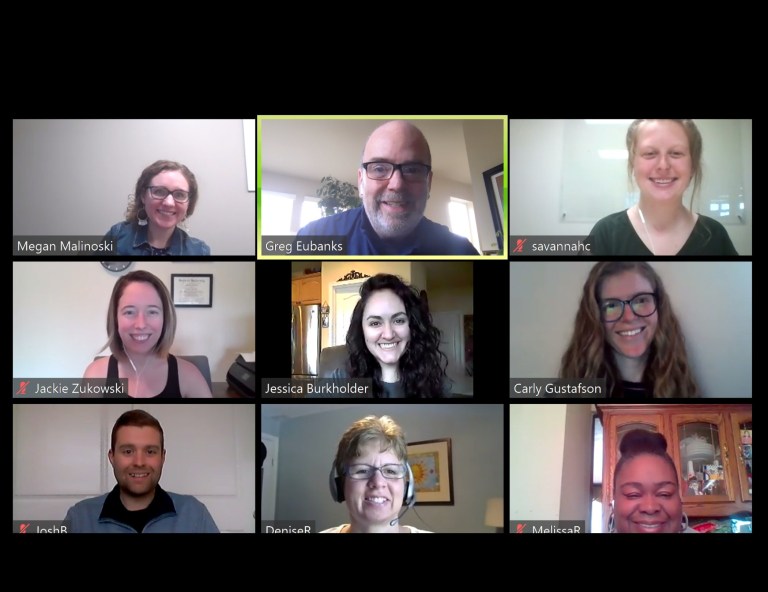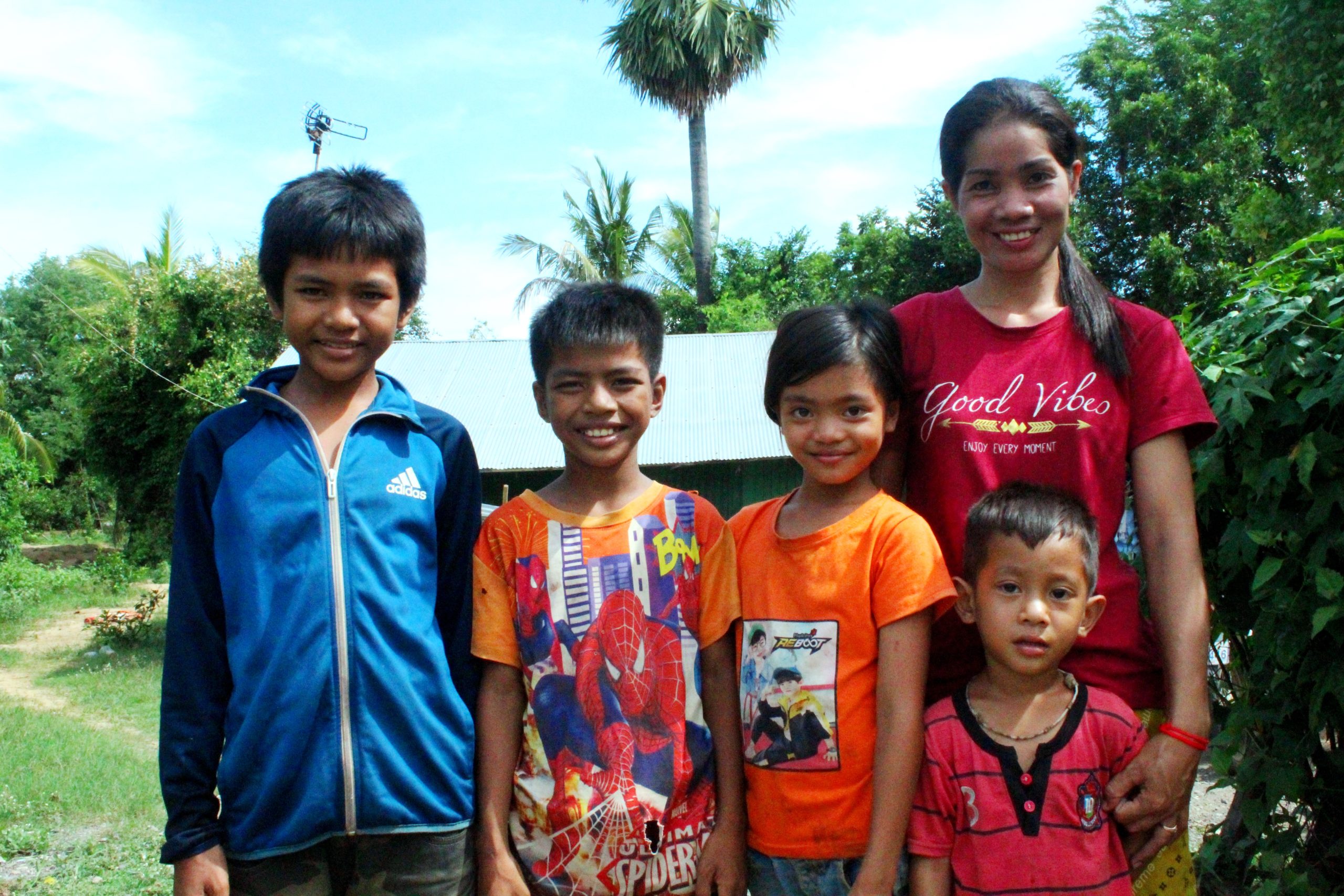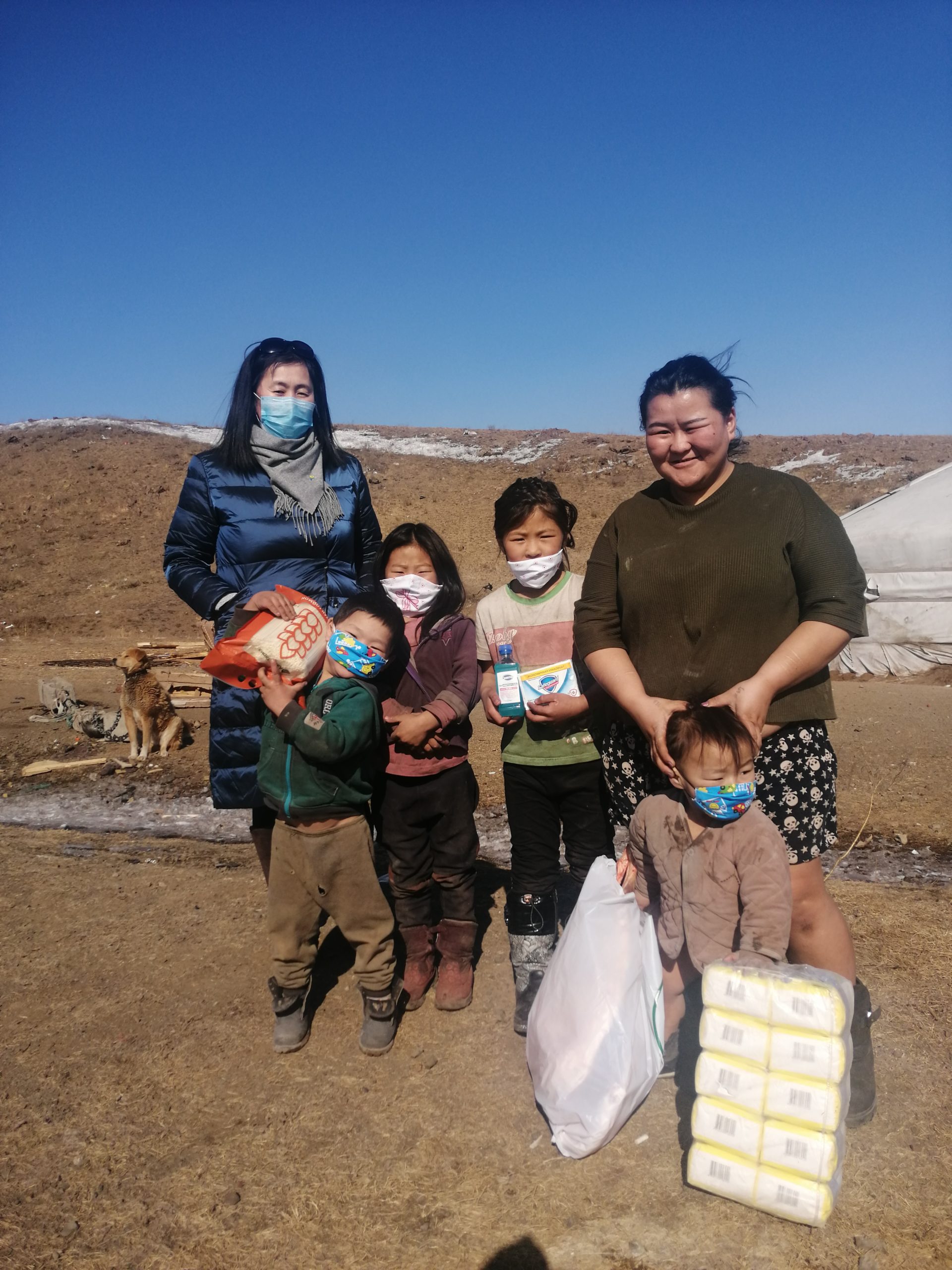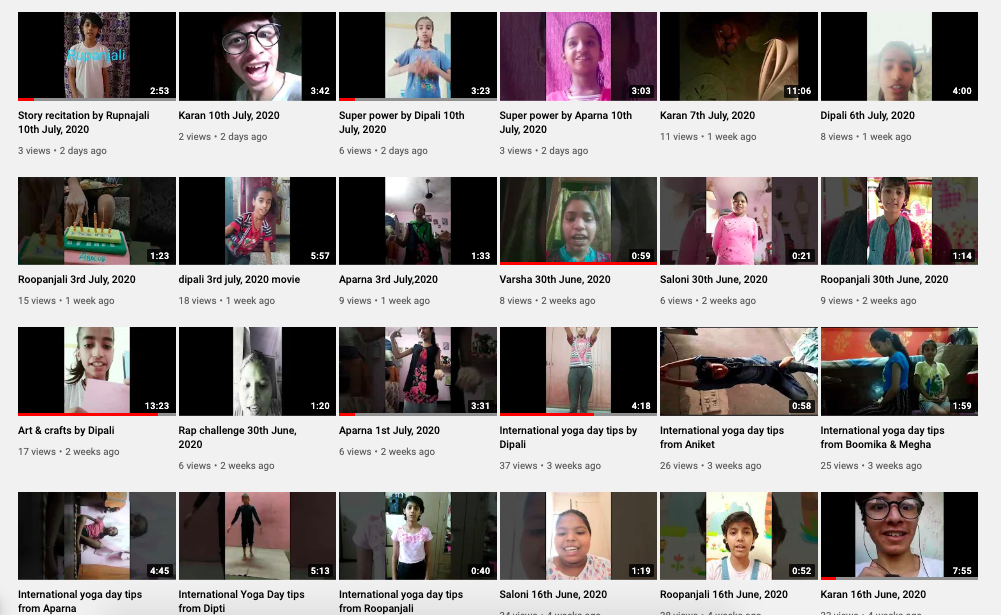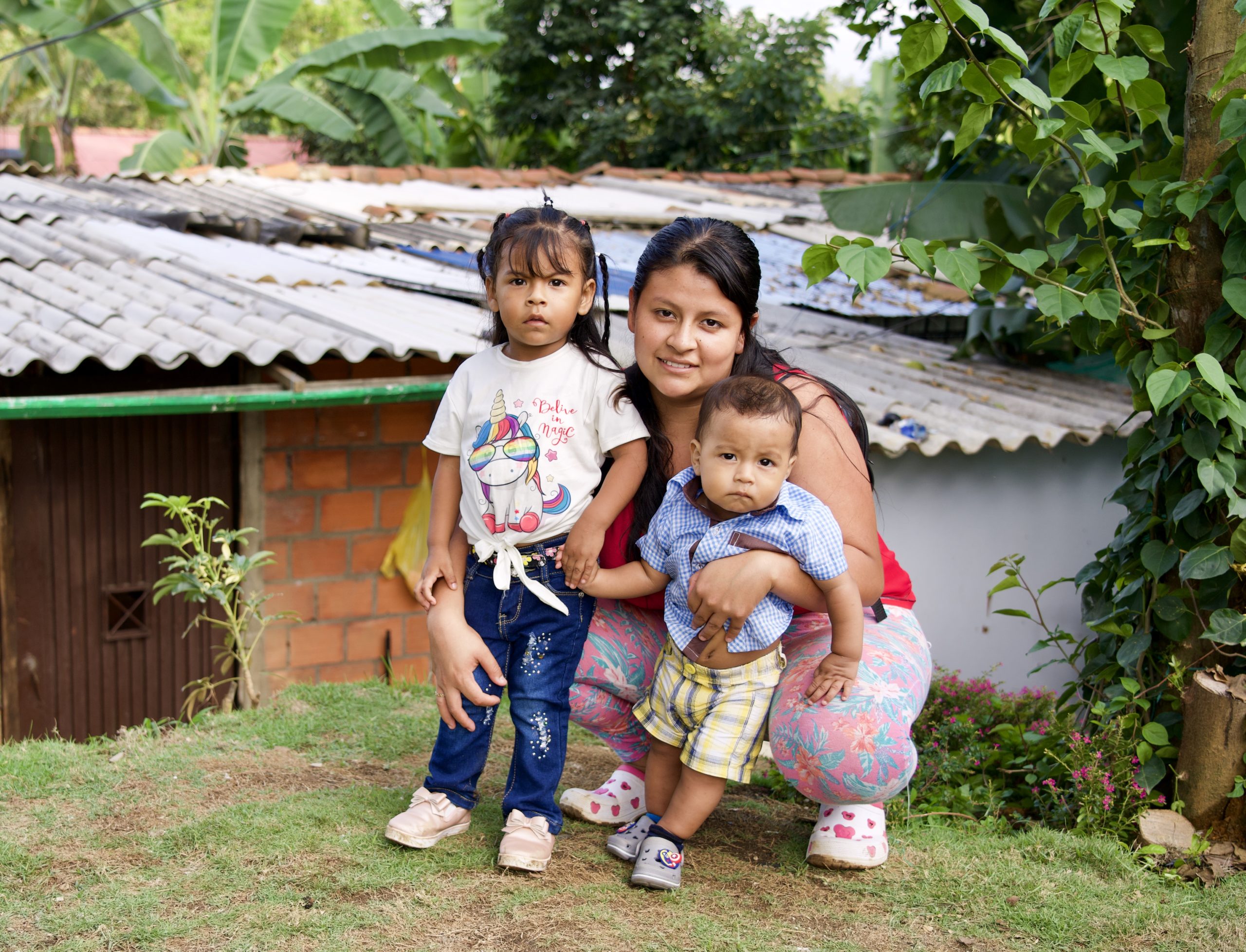The COVID-19 pandemic has placed unprecedented challenges before the children, families and communities Holt serves. As already vulnerable populations struggle to adapt to the economic and social disruption of this global crisis, critical work in family strengthening, orphan care, and domestic and international adoption has taken on new dimensions.
While not typically an “emergency response” organization, dedicated Holt staff in deep collaboration with long-time partners have reacted with agility and innovation to meet emergency needs as well as continue delivering holistic services and care for orphaned children and vulnerable families across our country programs. The following are brief illustrations of how Holt teams have adapted to meet shifting needs in response to COVID -19.
Supporting Children and Families in the Adoption Process
Around the world, our staff and partners continue to adapt to new working conditions surrounding COVID-19 to support children and families in the adoption process.
Observing new social distancing requirements, Holt social workers resumed in-person homestudy and post-placement visits in May. With health and safety our utmost concern, our domestic U.S. services team conducted a remote online training on health and hygiene guidelines for these in-person visits.
While for most children it has been safer for them to remain quarantined in care centers than to travel during the pandemic, adoption travel has continued mostly uninterrupted for families adopting from Korea. Holt’s Korea team is now providing education and guidance to help families prepare for any challenges they may face while undergoing mandatory quarantine when they arrive in country, as well as health and safety guidelines once home in the U.S. with their child.
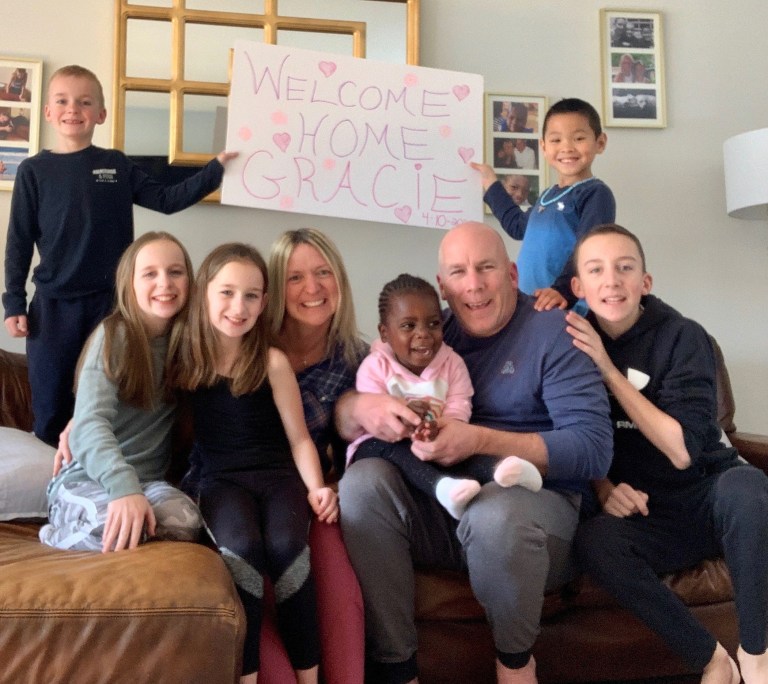
Holt staff in Haiti and the U.S. worked round the clock to help Gracie travel to her family in April.
Our teams on the ground have also remained tireless in their dedication to helping children join permanent, loving families. In some cases, this has meant advocating for exceptions to be made on their behalf. Four-year-old Gracie was weeks away from traveling to her adoptive family in the U.S. when COVID-19 hit Haiti in late March. With a heart condition and suppressed immune system, and given Haiti’s poor medical infrastructure, she urgently needed to be on the last known flight out, on April 9.
As Haiti’s borders closed and government offices limited hours of operation, Holt staff and partners in both Haiti and the U.S. began working round the clock to expedite the process for Gracie to leave the country — advocating for her up until the passport office closed in Port-au-Prince on April 9. With only hours to spare, they successfully secured her exit documents. Gracie is now safe at home with her family in New Jersey.
Serving Children and Families Virtually in the U.S.
As the pandemic forced businesses, in-person appointments and nearly all gatherings to close in the U.S., Holt quickly adapted to continue domestic services for children, families and adoptees.
In Illinois and Wisconsin, domestic infant adoption staff navigated hospital restrictions to continue meeting with birth moms who wish to make an adoption plan, and to transition babies to their adoptive parents. In many cases, Holt’s social workers have been the only individuals allowed into the hospital to provide counseling and support during this critical time.
In Oregon and Washington, Holt’s foster care and adoption team has gone above and beyond to serve children and families — offering to virtually “babysit” for fostering families while they get a mini respite, helping children celebrate their birthdays, engaging in daily text or email communication with families, launching an online family support group, and training new foster families in anticipation of an influx of children needing foster placements once the school year resumes.
Across the country, Holt’s clinical and adoption therapy services quickly pivoted to videoconferencing and successfully began counseling using a telehealth platform. And for the hundreds of adoptees who had been eagerly anticipating Holt Camp this summer, Holt’s camp team quickly adapted to still make camp a possibility — shifting from in-person camps to online camp for over 400 adoptees.
Keeping Children Safe and Learning While Schools Are Closed
Around the world, one of the greatest stressors on children and families is the closure of schools to help contain the spread of COVID-19. From the loss of school lunch to disruption in education to a greater risk of child labor and early marriage, school closures have endangered children in many ways — and our staff and partners have launched innovative responses to keep children safe and learning while quarantined at home.
India, especially, is a country where children are at increased risk. In mid-March, all of India went under a mandatory lockdown to slow the spread of COVID-19. As schools closed, Holt’s three long-standing partner organizations began to serve children and families in new and critical ways.
In Delhi, our partner Shishu Sangopan Griha (SSG) launched a video blog — or “vlog” — to help keep children connected, engaged and learning during the pandemic. Through this YouTube channel, older children submit videos and interact with each other and with their SSG social workers digitally. In addition to fun activities like arts and crafts, the children discuss deeper topics like education, family structure and more. SSG is also currently working to develop online classes for the 19 children in their informal school program next year.
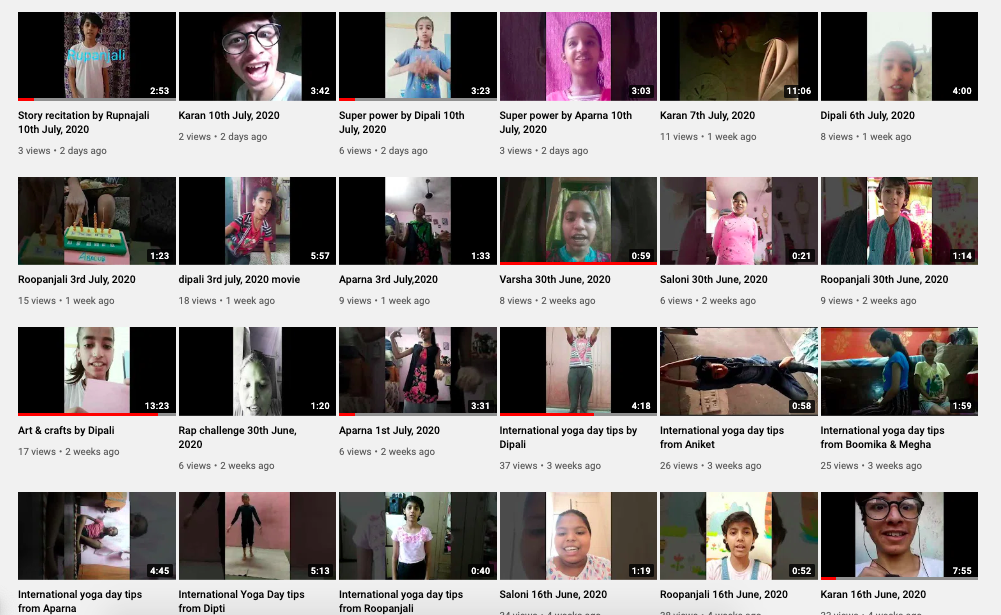
Holt-supported children in Delhi learn and connect with each other via video blog, or “vlog,” online.
In Bengaluru, our partner Vathsalya Charitable Trust (VCT) is providing online education resources to the more than 300 children who attend their daycare and informal school, and is also holding socially distant in-person meetings with parents. While in Pune, our partner Bharatiya Semaj Seva Kendra (BSSK) set up a digital device library and held online summer camps for children that included drawing contests, English-language lessons and more. By finding ways to keep children learning and maintaining services and support to families, our partners are helping to lessen many of the greatest threats that school closures pose to children — in India, and all of our country programs.
Continuing Holistic Care for Families in Family Strengthening Programs
One of the cornerstones of Holt International’s service model is the holistic care our staff and partners provide to children and families in our programs — care that involves regular home visits, counseling, trainings and social work support as each family works to become stable and self-reliant. To continue this same level of comprehensive, case-managed care during the pandemic, our teams on the ground have adapted in unique and agile ways.
Ms. Yan, for example, is a single mom caring for her two children and two nephews in Battambang, Cambodia. Before she enrolled in our family strengthening program last year, she considered placing her nephews in orphanage care. After Holt Cambodia helped Ms. Yan expand her small business selling drinks at a local school, however, she began earning a more stable income.
But when schools closed in Cambodia due to COVID-19, Ms. Yan lost her source of income — and had no way to support her children.
To prevent families like Ms. Yan’s from falling into crisis, Holt Cambodia immediately responded with emergency food assistance. But to help families more holistically, Holt Cambodia social workers also continued both remote and socially distant face-to-face visits with families in case-managed care, allowing them to identify the unique needs of each family — and develop a plan to address them. With Ms. Yan, for example, social workers helped her develop an alternative business plan doing laundry for her neighbors until school reopens in Cambodia.
Across our programs, our partners have similarly adapted to continue providing holistic care during the pandemic. In India, for example, our partner Bharatiya Semaj Seva Kendra (BSSK) set up a digital library so that families could borrow devices to access BSSK’s online services such as counseling and health awareness training, as well as an online parenting workshop. In many different ways, our partners have continued to support families’ long-term progress toward stability and self-reliance.
Caring for Children in Orphanages During the Pandemic
Holt supports 12 orphanages in China, including eight in Hubei Province, and one in the city of Wuhan, the epicenter of the virus. Because almost all children in orphanage care have special needs — in China and around the world — they were and are especially vulnerable to illness, and therefore especially at risk of COVID-19. Right away, Holt’s first-stage response was prevention.
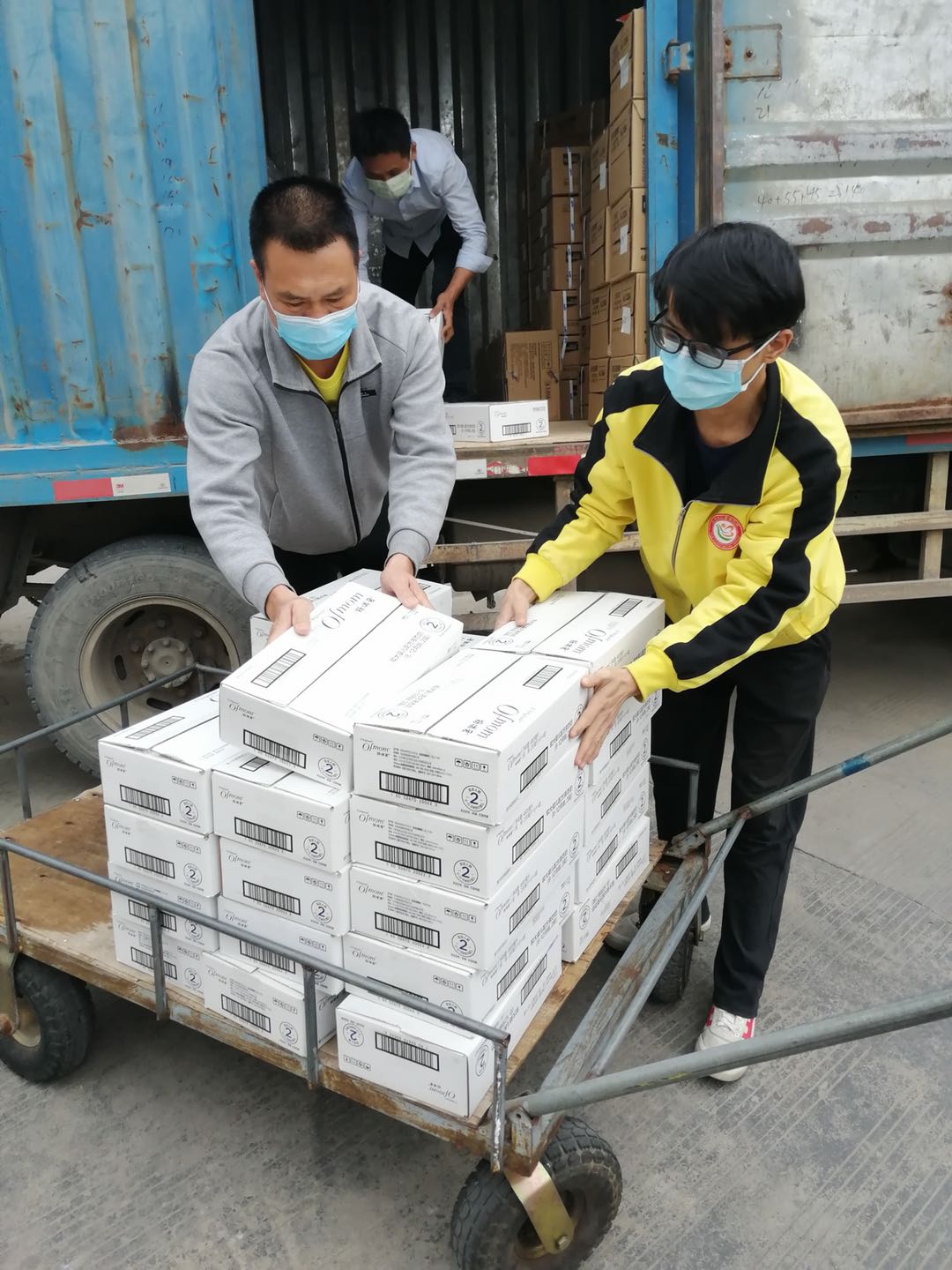
A shipment of masks, disinfectant and other critical supplies is delivered to an orphanage in China.
With emergency funds raised by Holt donors, Holt staff in China purchased masks, sanitizer and disinfectants, thermometers and more to protect children in care. Orphanages in China took drastic measures to keep children safe. They closed all access to the outside, and began two-week rotations for orphanage caregivers, converting the children’s playrooms into makeshift dormitories.
And as COVID-19 began to spread beyond China, Holt’s strategy was the same. We sent protective equipment to orphanages in every country where we work.
As a safety measure, orphanages restricted nearly all access in and out of the orphanage, which included canceling any volunteer programs.
One care center in Thailand had to pause their volunteer program that allowed 90 volunteers to engage with children each week. This time was critical to children’s development and socialization, and when it ended, the orphanage began to report increased cases of head banging and rocking — coping mechanisms for children who suddenly weren’t getting the attention they needed. To maintain the special bond many volunteers had with individual children, volunteers were allowed to send letters, photos and gifts and to bring the children’s favorite foods to the orphanage. To provide more direct care to children during this time, our partner also increased staff hours.
Delivering Emergency Food to Families in Need
In many countries, food security has proven a major challenge as schools have closed and families have lost jobs and income due to the pandemic. To prevent children and families from falling into crisis, our teams on the ground have mobilized urgent responses — adapting to both COVID-19 and the unique context of the communities in which they work.
When COVID-19 began to spread in Mongolia, for example, the government closed all schools — including the Holt-supported Red Stone School for children living in or near Ulaanbaatar’s largest garbage dump. For many Red Stone students, the free meal they ate at school was the only meal they ate all day.
Wearing masks and observing social distance guidelines, our Holt Mongolia team immediately coordinated an emergency food delivery to these children and their families who live in the remote hillside community surrounding the Red Stone School. Our in-country team is now partnering with Red Stone teachers and administrators to identify students at greatest risk, and to continue delivering emergency food until school can safely resume.
India is another country where lockdown measures have severely affected the food security of families and children — and each of our partners have taken a different response to meet the needs of the communities they serve. In Pune, India, for example, Holt’s longtime partner Bharatiya Semaj Seva Kendra (BSSK) delivered emergency food boxes to 333 children and their families in need. In Bengaluru, as many families decided to migrate back to their villages, our partner Vathsalya Charitable Trust (VCT) provided packed lunches to feed them on their long journeys home.
While in Delhi, India, our partner Shishu Sangopan Griha (SSG) provided emergency cash transfers to 355 families, empowering them to meet their own identified needs in addition to food.
Everywhere Holt works, our staff and partners are adapting their service models to ensure basic needs are met for every child and family during this global crisis. For many families, the greatest need they face right now is food.
